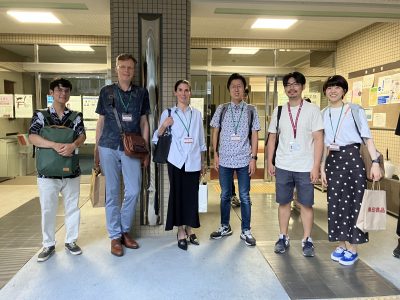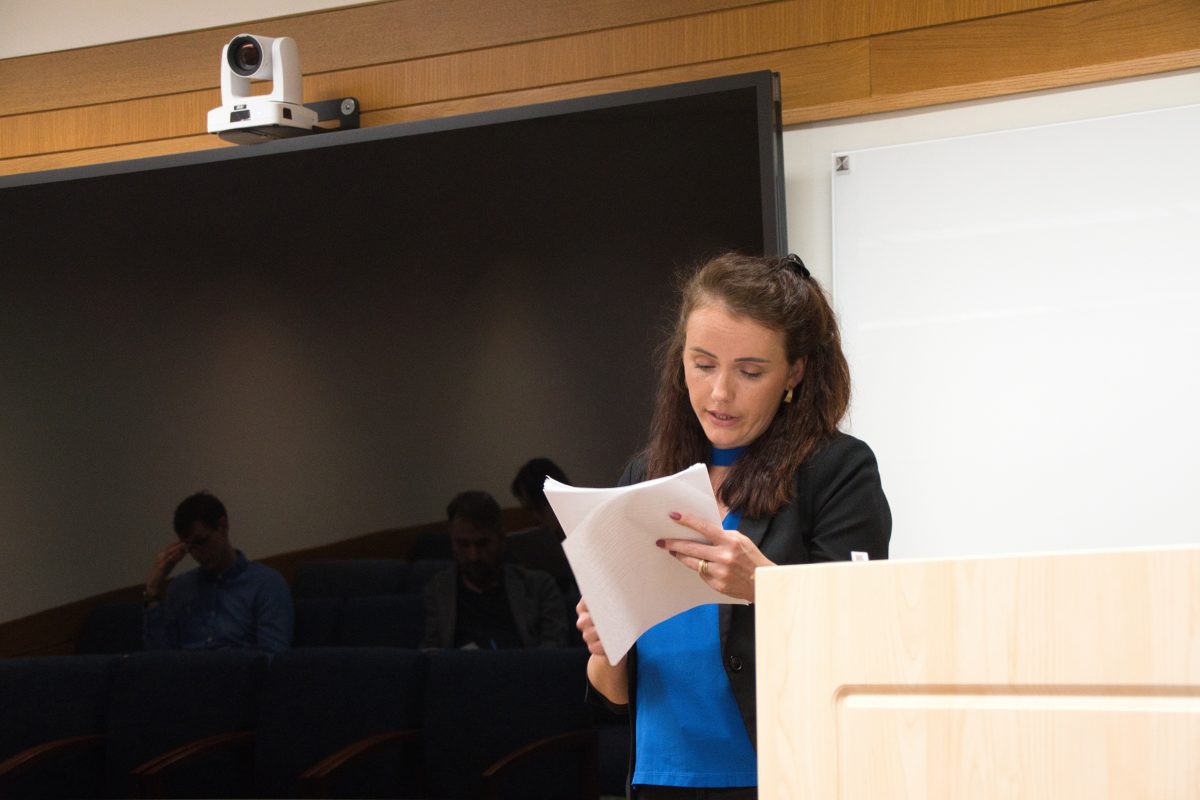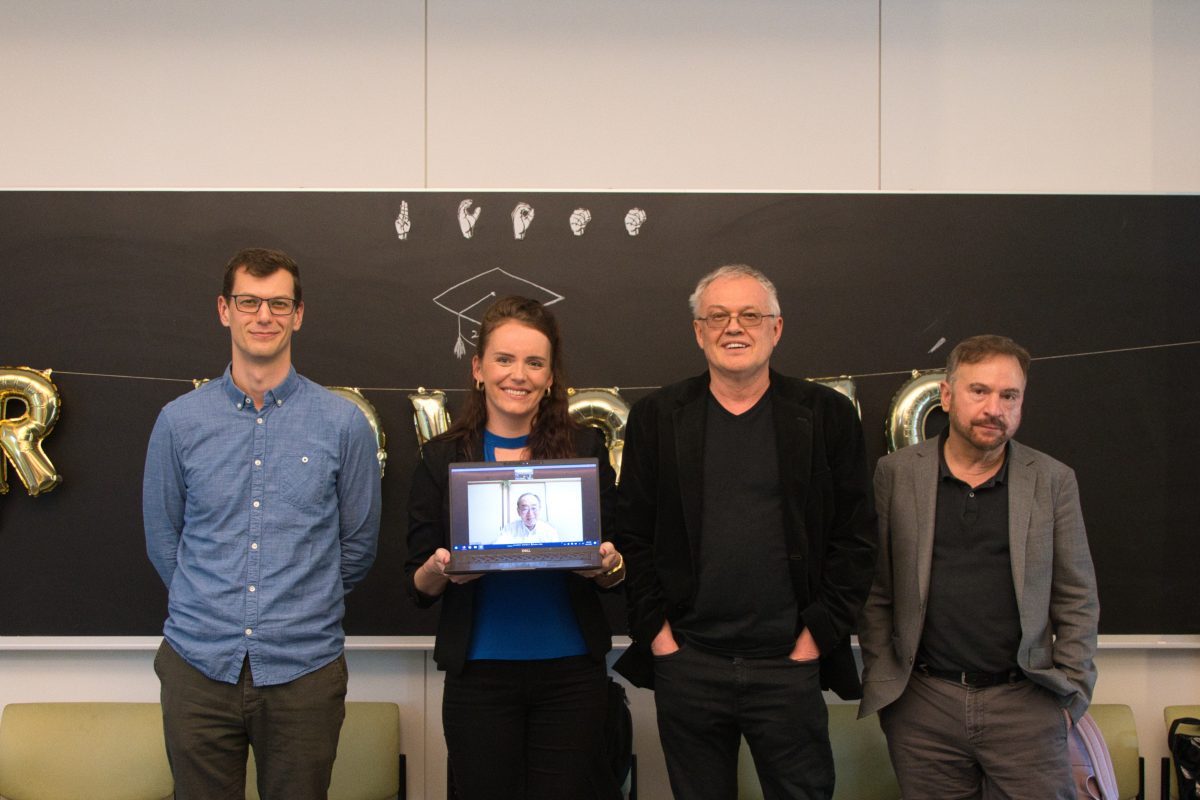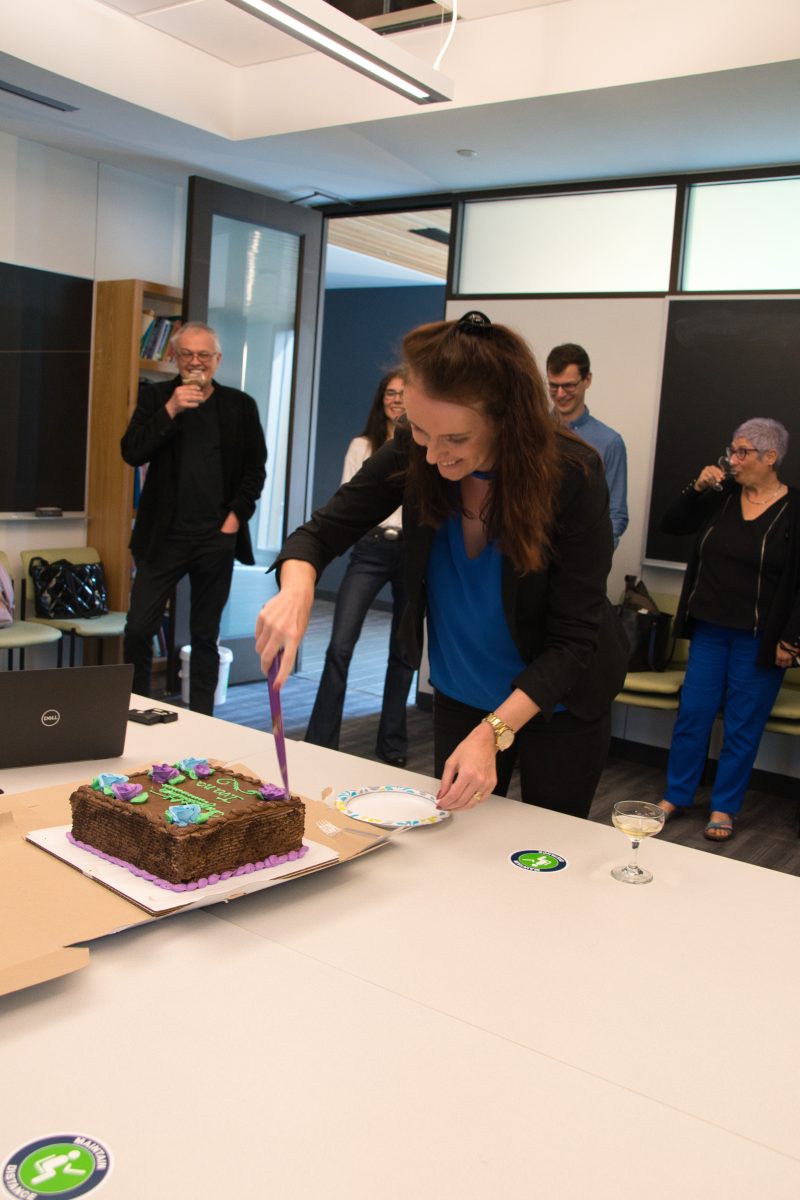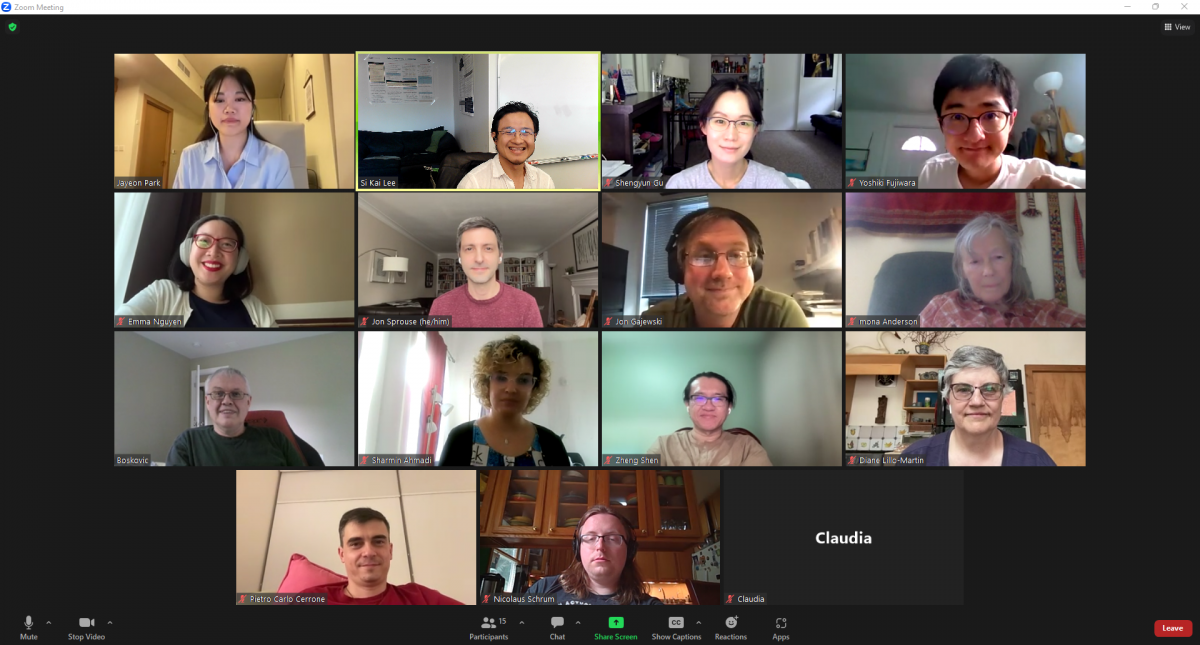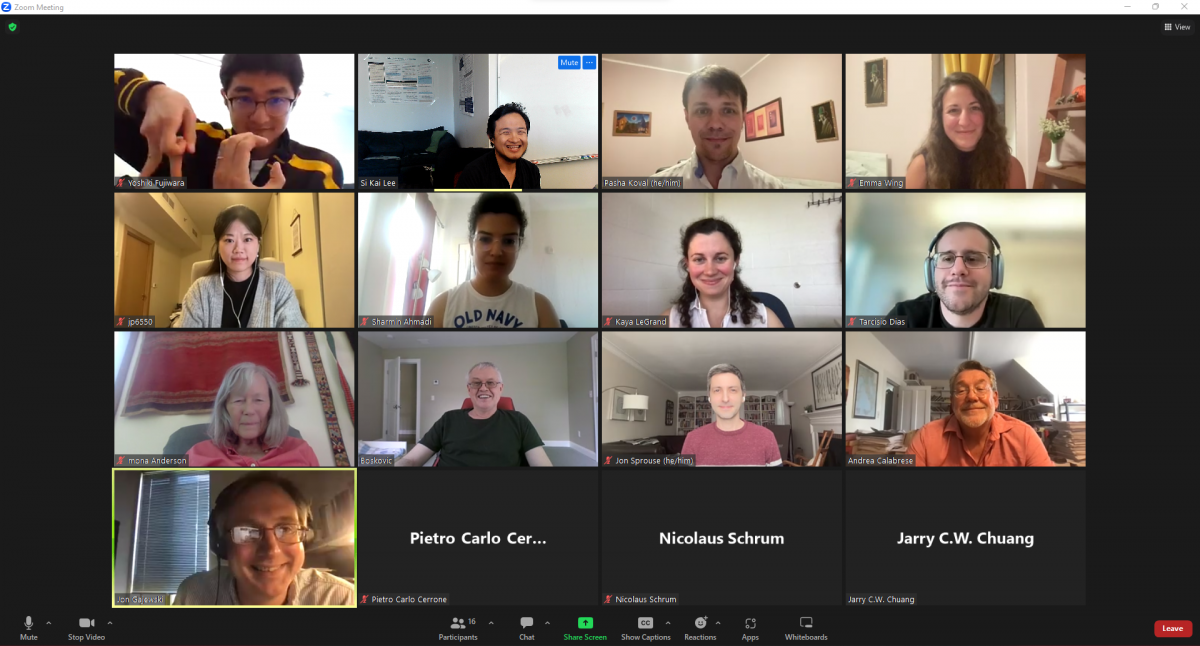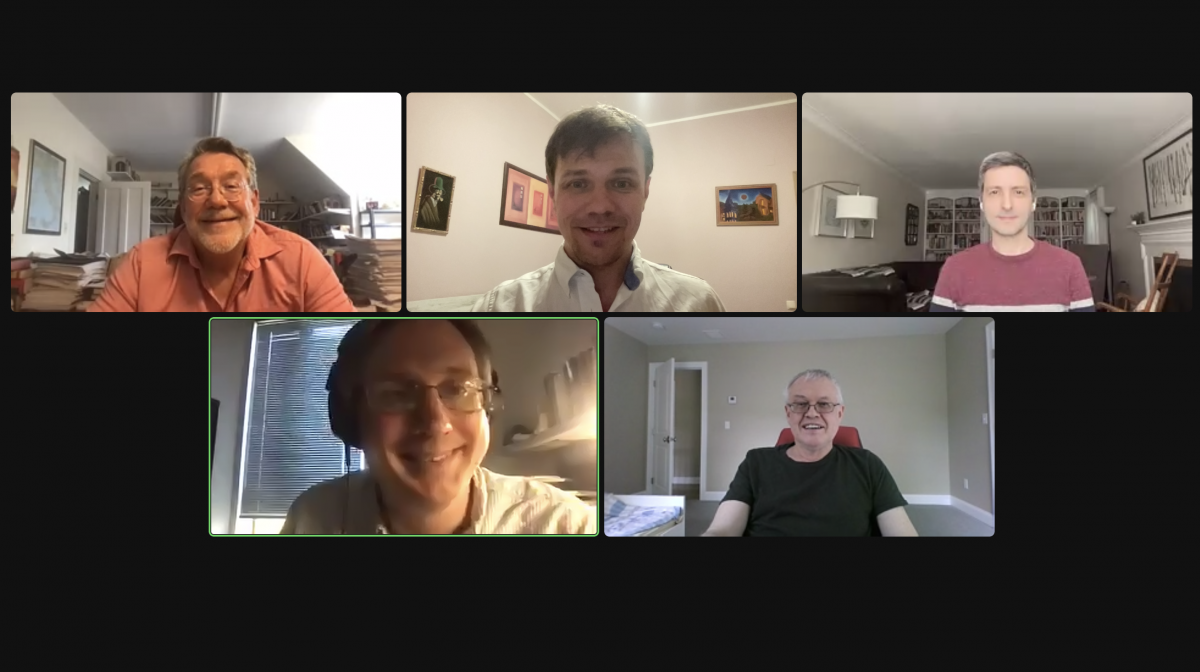Sinn und Bedeutung 28, hosted by Ruhr University Bochum (RUB), is taking place September 5-8, 2023. UConn linguistics will be well represented at the conference, with the following talks:
- Muyi Yang (UConn 2023, now at Osaka University). Back to Boolean: Rethinking clausal conjunctions in attitude ascriptions
- Yu Hashimoto, Yusuke Yagi, and Hajime Mori. Dynamics and alternatives in unconditionals
- Yusuke Yagi. Local context of logical connectives is not universal: A case study of Japanese disjunction
- Adina Bleotu, Rodica Ivan, Gabriela Bîlbîie, Mara Panaitescu, Monica Casa, Anton Benz, Lyn Tieu (UConn 2013, now at University of Toronto), & Andreea Nicolae. Multiple disjunctions in child Romanian: On the possible sources of conjunctive readings
… and the following poster presentation:
- Magdalena Kaufmann, Stefan Kaufmann, Teruyuki Mizuno (UConn 2023, now at Ochanomizu University), and Muyi Yang. Problem solving with Japanese ‘beki’
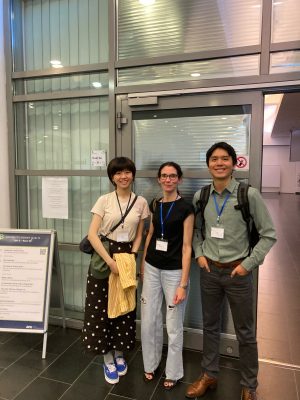
Picture: UConn contingent at SuB 28
